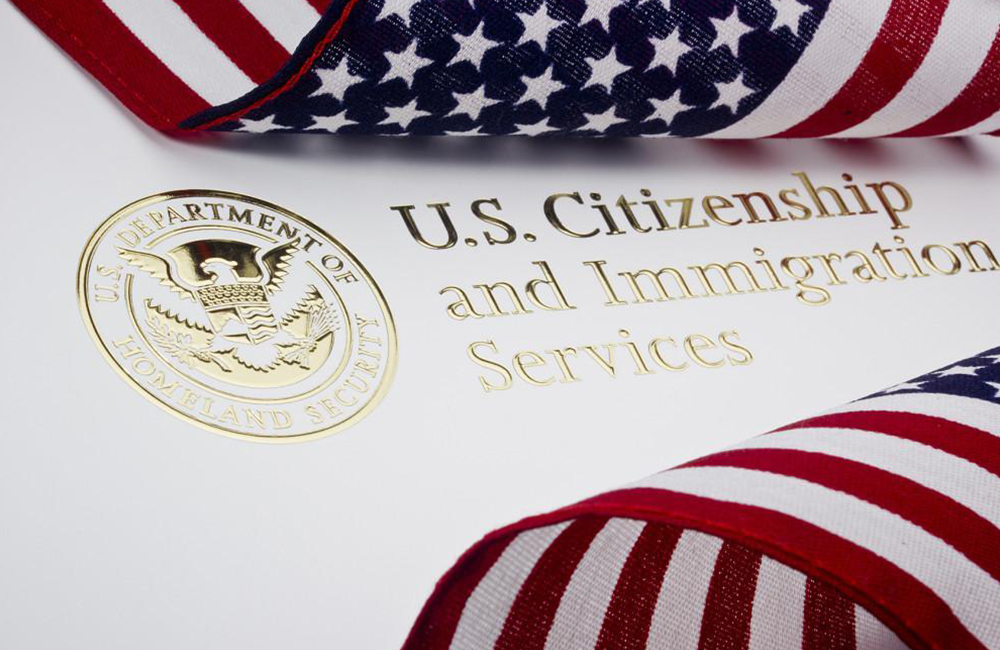
The U.S. Court of Appeals for the District of Columbia has upheld a district court ruling that visa revocation decisions by U.S. Citizenship and Immigration Services (USCIS) are unreviewable by the courts. Specifically, the court agreed that “Congress placed visa revocation decisions within the unreviewable discretion of the executive” and, therefore, the plaintiff lacks standing, a legal prerequisite, to sue. The D.C. Circuit’s decision in iTech U.S., Inc. v. Renaud aligns with prior decisions out of nine other federal circuit courts.
Under the Immigration and Nationality Act (INA), there is a multi-step process for an alien in the United States to obtain an employment-based green card (lawful permanent resident status). First, there must be a legitimate job offer and the employer must generally obtain a labor certification from the Department of Labor (for second and third preference categories) that the intending-immigrant worker will not adversely affect the wages of U.S. workers. Once DOL approves the labor certification, the employer then submits a Form I-140, Immigrant Petition for Alien Worker, with USCIS. Once a visa number is available according to the Visa Bulletin managed by the Department of State, which takes into account worldwide visa limits per category and per country visa caps, a Form I-485, Application to Register Permanent Residence or Adjust Status, is submitted to USCIS for the alien to adjust status from nonimmigrant to immigrant (lawful permanent resident).
Under INA section 205, the Department of Homeland Security secretary “may, at any time, for what he deems to be good and sufficient cause, revoke the approval of any petition approved by him” for an immigrant visa. “Such revocation shall be effective as of the date of approval of any such petition.” The DHS secretary has delegated this statutory revocation authority to any USCIS officer authorized to approve employment-based immigrant visa petitions.
In this case, iTech filed an I-140 on behalf of Vishnu Vardhana Reddy Katta Sai Sampoorna (“Reddy”) in July 2015. In its petition, iTech provided evidence of its ability to pay Reddy the proffered wage and evidence that Reddy obtained a bachelor’s degree “in the form of a degree certificate from the University of Madras along with transcripts from 1999 through 2002”. USCIS approved the I-140 two months later, but a year-and-a-half later issued a notice of intent to revoke (NOIR) the petition. In the NOIR, USCIS said the visa petition was “approved in error” and identified “inconsistencies in the record calling into question whether the beneficiary [Reddy] meets the educational requirements of the labor certification” and whether iTech “continues to demonstrate the ability to pay the proffered wage.”
iTech provided additional documentation, but USCIS was not persuaded and revoked the immigrant visa petition for Reddy. In August 2018, iTech filed a timely motion to reopen the case, but USCIS denied that a year later. iTech then filed a lawsuit in the federal District Court for the District of Columbia alleging that USCIS violated the Administrative Procedure Act by revoking the approved I-140 in an “arbitrary and capricious” manner because the agency failed “to engage in rational decision-making based on the evidence in the record relating to the Company’s ability to pay and [Reddy’s] educational credentials.” The district court granted USCIS’s motion to dismiss the case for lack of jurisdiction, finding that the plain language of the INA preserves “the Secretary’s ability to revoke a I-140 petition ‘at any time’ and for any reason he ‘deems to be good and sufficient cause’ [and] renders USCIS’s revocation decision ‘discretionary’ under” the INA.
Undeterred, iTech appealed to the Court of Appeals for the District of Columbia. On appeal, iTech argued that only denials of discretionary relief (the title of the relevant INA section heading) are insulated from judicial review, and revoking an I-140 does not fall within that classification. USCIS agreed that an I-140 revocation is not “relief”, but pointed to the actual statutory language “any other decision or action” as encompassing revocations as being exempt from judicial review. After a lengthy analysis of how the courts handle competing statutory interpretations, the Court of Appeals agreed with USCIS’s interpretation. In rejecting iTech’s statutory reading, the court explained, “While section headings are instructive, section 1252(a)(2)(B)’s heading is of limited use where the text itself admits of limited ambiguity.”
The Court of Appeals for the District of Columbia’s holding in this case of visa revocations not being subject to judicial review aligns with similar rulings from nine of the other 13 federal courts of appeals. That includes the courts of appeals for the First, Third, Fourth, Fifth, Sixth, Seventh, Eighth, Tenth, and Eleventh circuits. Additionally, the Second Circuit Court of Appeals has hinted that it adopts this interpretation in non-binding language from a decision, known as dicta. The Court of Appeals for the Federal Circuit has not ruled on this issue. Unsurprisingly, the Ninth Circuit is the lone jurisdiction to hold that visa revocations are subject to judicial review.
